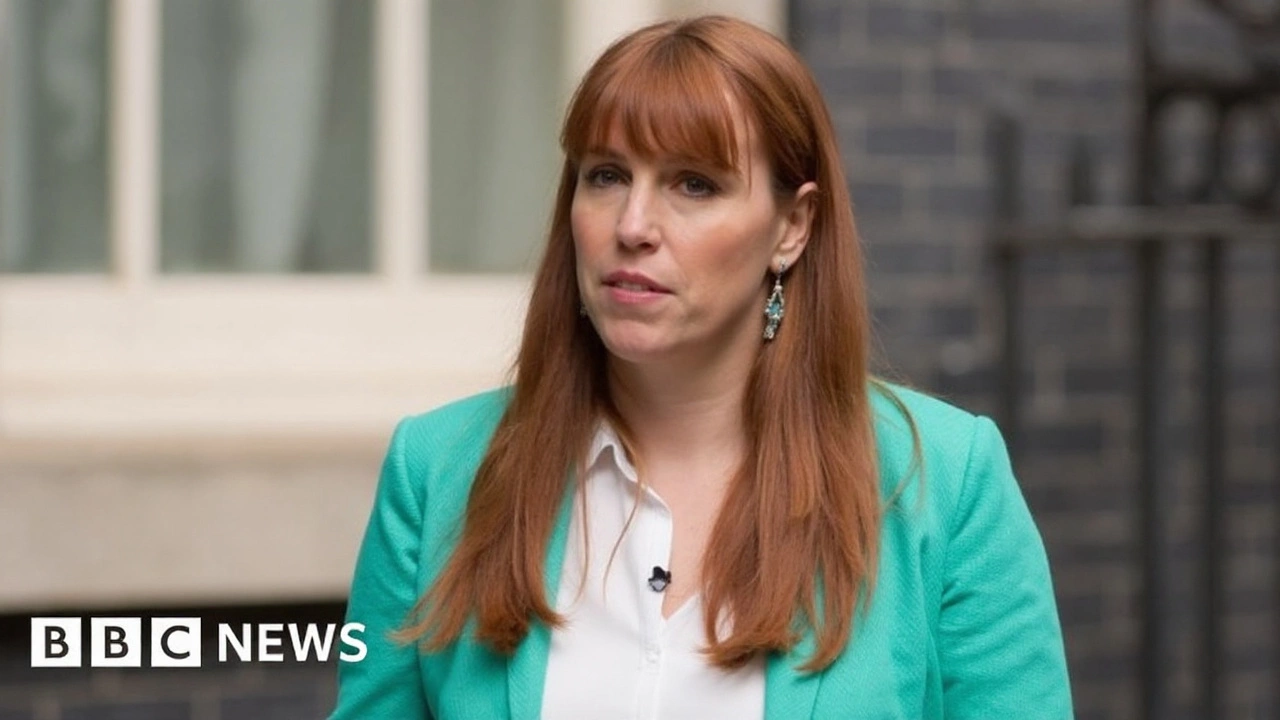
A resignation that lands early in Labour’s term
A deputy prime minister resigning over a property tax miscalculation is rare and politically explosive. Angela Rayner stepped down on Friday after an independent inquiry judged she fell short of the standards expected of ministers when she underpaid stamp duty on a flat she bought in Hove earlier this summer. She had already admitted the shortfall this week and referred herself for scrutiny.
The sequence moved fast. On Wednesday, Rayner acknowledged she had not paid enough stamp duty and asked the government’s independent adviser on ministerial standards, Laurie Magnus, to review the case. By Friday, Magnus had delivered his findings to Prime Minister Keir Starmer. The report said Rayner acted in good faith but should have sought specific tax advice before completing the purchase. That nuance mattered: no suggestion of intent, but an error serious enough to cross a line.
Rayner’s resignation letter was blunt. She took full responsibility for the mistake and left her post rather than fight on. Reports suggest the underpayment may have saved her roughly £40,000, depending on the value of the property and the rules that applied. For a minister who held the housing brief and often attacked tax dodging across the aisle, the optics were always going to be brutal.
Starmer, in a handwritten note, praised her contributions and said she had made the right call, even as he expressed sadness. Politically, losing such a prominent minister so early in a government’s life stings. Labour only took office in July, promising competence, integrity, and a reset after years of Conservative turmoil. This is an unforced error they did not need.

What the inquiry found—and why it matters now
The case turns on stamp duty land tax (SDLT), the levy paid on property purchases in England and Northern Ireland. Rates step up with price bands and are higher for additional homes. First-time buyer relief and surcharges complicate the picture further. It’s easy to get wrong—especially around whether a property counts as a main residence, whether a previous home has been sold within the required window, and how any applicable surcharges or reliefs interact.
Magnus’s view that Rayner acted in good faith is significant. It suggests no deliberate concealment, but it also underlines the ministerial code’s demand for meticulous care. The code isn’t just about avoiding criminality; it’s about judgment, diligence, and public confidence. As ethics advisers often stress, perception matters almost as much as the ledger.
Here’s the basic SDLT landscape that trips people up:
- Different bands apply as a property price rises, and the marginal rate jumps at each band.
- There’s a standard 3% surcharge for additional properties, which can apply even for a short overlap between homes.
- First-time buyer relief has strict eligibility conditions and upper limits.
- If the wrong rate is paid, the buyer can file an amendment, pay the difference and interest, and sometimes face a penalty depending on whether HMRC deems the error careless or deliberate.
Rayner’s case will likely follow the usual technical path: an adjusted return, payment of any outstanding tax, interest, and—if HMRC decides—an administrative penalty. The politics, however, do not follow neat paperwork. She was the government’s housing lead, a front-of-house communicator, and a co-architect of Labour’s pitch to fix planning, boost housebuilding, and close loopholes. She was also a sharp critic of tax wrongdoing after high-profile rows in recent years, most notably the 2023 removal of Conservative party chair Nadhim Zahawi over his tax affairs.
That history is why this lands harder. When a minister has framed their politics around clean hands and tax fairness, any personal lapse invites charges of hypocrisy. Expect opposition MPs to press for more detail on the transaction, the advice she did (or didn’t) seek, and the timeline of corrections. They’ll also challenge Labour’s moral authority to push tougher compliance measures while dealing with this fallout.
For Starmer, two immediate tasks loom. First, he needs a replacement deputy prime minister and a steady hand on the housing brief, a portfolio tied to Labour’s growth plan, planning reform, and targets on new homes. Second, he must show the standards machine works without looking chaotic. Moving quickly to install an interim lead for housing policy—likely a senior minister already familiar with the brief—would calm nerves in Whitehall and among developers and local authorities waiting on new planning guidance.
Inside government, the episode will be read as a cautionary tale. Ministers and advisers will comb through their own financial affairs, double-checking returns, declarations, and ownership structures. The ministerial code sits alongside the Nolan principles—selflessness, integrity, objectivity, accountability, openness, honesty, and leadership. These aren’t just wall posters in Downing Street. They are the yardstick used by ethics advisers and, more importantly, by voters who expect those in charge to respect the rules they enforce.
Could Rayner have stayed? Some in Labour will argue the “good faith” finding gave her a narrow path to survival: correct the error, apologize, and carry on. But the larger calculus is about distraction risk. A drip-drip of document requests, parliamentary questions, and headlines would have anchored the government in a story it can’t win. Early in a term, leaders often choose to cauterize the wound, not bandage it.
What changes now? On policy, Labour’s housing and planning agenda remains central: unlocking stalled brownfield sites, reforming parts of the planning framework, and pushing for higher build-out rates. The civil service machine keeps moving. The question is political bandwidth. A personnel reshuffle, even a tight one, pulls attention from bills, announcements, and budget prep.
There’s also the public trust test. Voters don’t follow the fine print of stamp duty banding, but they do spot double standards. Swift acceptance of fault and a clean resignation can limit the damage. That seems to be the bet inside No. 10: take the hit now, insist the standards system did its job, and move on to delivery.
The wider lesson is simple: tax mistakes are not just private admin errors when you hold office. They are character tests. In a government that promised boring competence after years of drama, losing a marquee minister this early will sting—but it also sets a bar. The next appointments will show whether Labour can absorb the blow and keep its reform agenda on the rails.

Write a comment